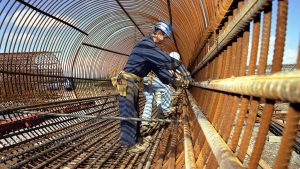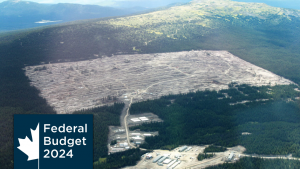As a result of stakeholder consultations, the Ontario government has released a proposal which aims to improve the way aggregate resources are managed across the province.
If passed, the proposed changes to the Aggregate Resources Act could reduce administrative duplication and delays for businesses while minimizing the impact extraction operations may have on the environment and surrounding communities.
The proposed amendments to the act are now available on the Environmental Registry of Ontario (ERO) for public feedback until Nov. 4. The changes are based on feedback from an Aggregate Summit in March 2019, an online survey and email submissions.
“They had a lot of industry participants there and they asked them questions in terms of how it can be streamlined, what are some improvements that can be made to the act, and these proposed legislative changes are stemming from that consultation,” explained Nadia Todorova, director, government relations, Residential and Civil Construction Alliance of Ontario (RCCAO).
“As far as we can tell, the proposal really reflects the fact that the government heard what industry said during the consultations and it’s really focusing on reduction of duplication, reducing any inefficiencies or inconsistency in the application and the approvals process and overall just improving access to aggregate resources across the province.”
Growth and development in Ontario rely on continuing and in fact improved access to close-to-market aggregate,
— Rob Bradford
Toronto and Area Road Builders Association
Proposed changes as outlined on the ERO website include:
- strengthen protection of water resources by creating a more robust application process for existing operators that want to expand to extract aggregate within the water table, allowing for increased public engagement on applications that may impact water resources. This would allow municipalities and others to officially object to an application and provide the opportunity to have their concerns heard by the Local Planning Appeal Tribunal (LPAT);
- clarify that depth of extraction of pits and quarries is managed under the Aggregate Resources Act and that duplicative municipal zoning bylaws relating to the depth of aggregate extraction would not apply;
- clarify the application of municipal zoning on Crown land does not apply to aggregate extraction;
- clarify how haul routes are considered under the Aggregate Resources Act so that the LPAT and the minister, when making a decision about issuing or refusing a licence, cannot impose conditions requiring agreements between municipalities and aggregate producers regarding aggregate haulage;
- improve access to aggregates in adjacent municipal road allowances through a simpler application process for an existing licence holder, if supported by the municipality; and
- provide more flexibility for regulations to permit self-filing of routine site plan amendments, as long as regulator conditions are met.
“In general, the Toronto and Area Road Builders Association (TARBA) fully supports the minister’s (of Natural Resources and Forestry) intentions to improve aggregates management policies in Ontario through reducing red tape and bureaucratic overlap,” said Rob Bradford of TARBA in an email to the Daily Commercial News, adding road builders are the largest collective users of construction aggregates.
“Growth and development in Ontario rely on continuing and in fact improved access to close-to-market aggregate resources and anything the government can do to help facilitate that objective will be welcome.”
The government is also considering some regulatory changes including enhanced reporting on rehabilitation by requiring more context and detail; allowing operators to self-file changes to existing site plans for some routine activities, subject to conditions set out in regulation; allowing some low-risk activities to occur without a licence if conditions specified in regulation are followed; clarifying requirements for site plan amendment applications; and streamlining compliance reporting requirements while maintaining the annual requirement.
Bradford said TARBA is planning to contact the minister’s office to offer suggestions on making greater use of recycled aggregates in Ontario a priority to improve both access and sustainability of virgin aggregate resources.
Currently Ontario, especially the GTA and major urban areas, are stockpiling millions of tonnes of reusable asphalt and concrete. There is not enough room to store it and often the fully recyclable materials are being treated as waste and dumped in landfills, Bradford explained.
“We encourage the minister to make greater use of recycled aggregates the cornerstone to his sustainability objective and the policies that will flow from them,” he stated. “The environmental benefits of greater recycling include reduction in demand for virgin aggregates, diversion of millions of tonnes of recyclable materials per year from landfill and reduced GHG emissions and infrastructure damage from tens of thousands of trucks hauling new aggregates from remote sources. To us it seems like a clear win-win for all parties.”
RCCAO is also planning to provide input on the proposed changes to the ministry before November 4.
“We are really supportive of the use of recycled aggregates so we’re hoping any further changes to the legislation incorporates that and we’ve been working a lot with municipalities on that but obviously the province has a very vital role to play as well,” Todorova said.
Follow Angela Gismondi on Twitter @DCN_Angela.










Recent Comments
comments for this post are closed